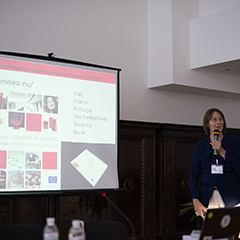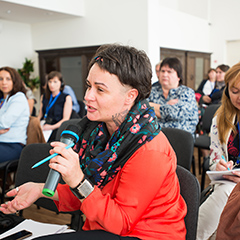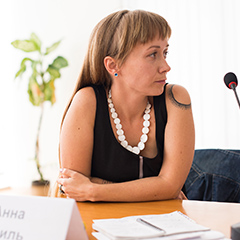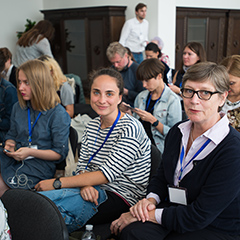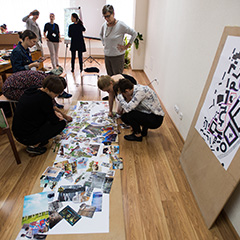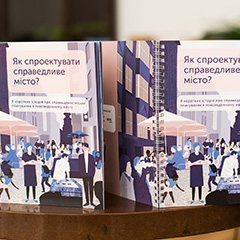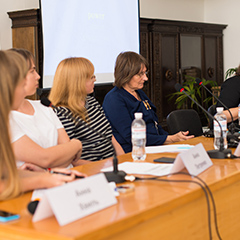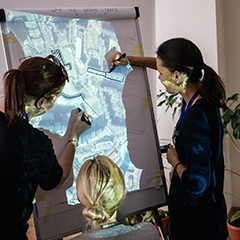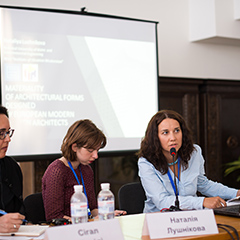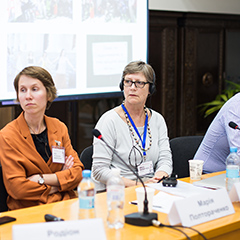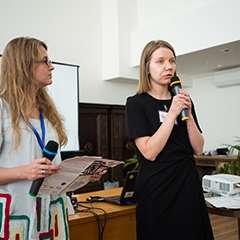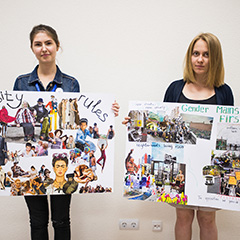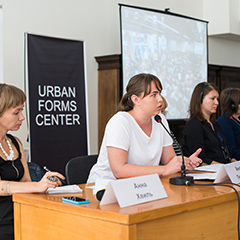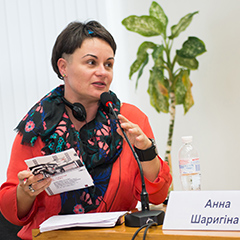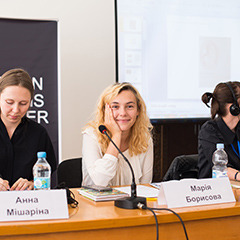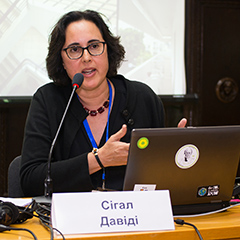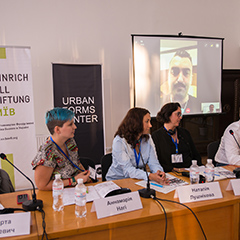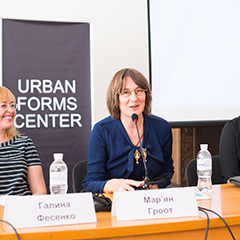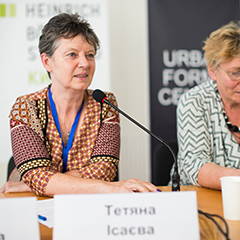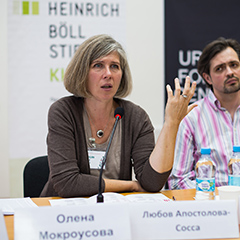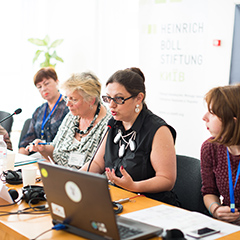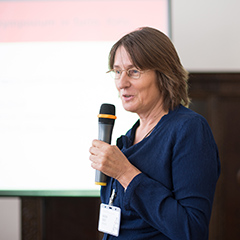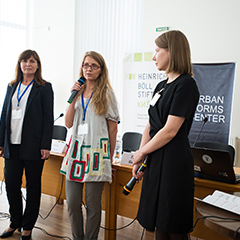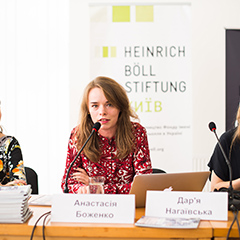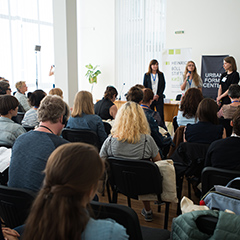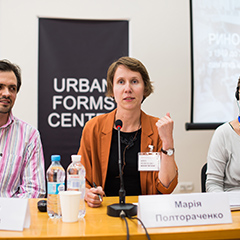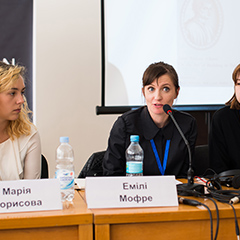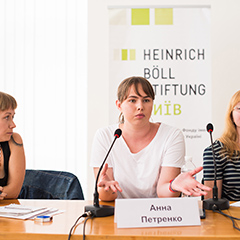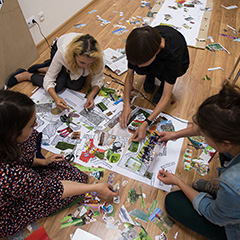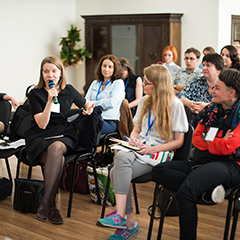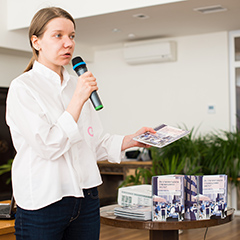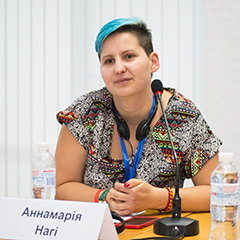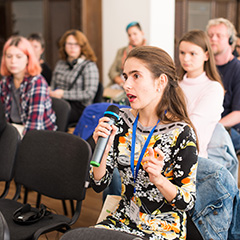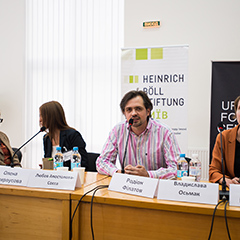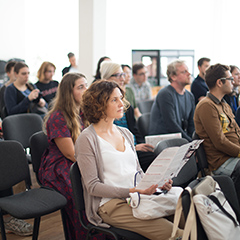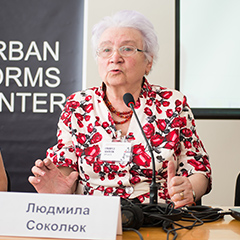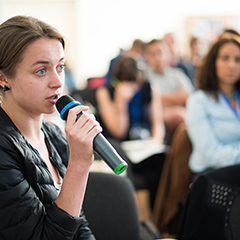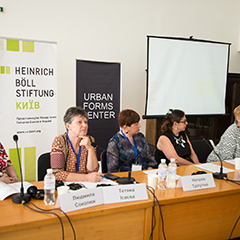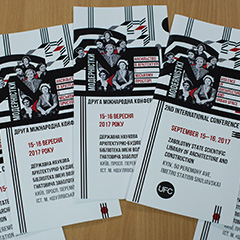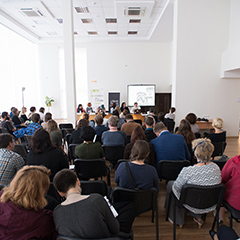2nd International Conference "Modernistki. Violence in Architecture and Urban Space"
Dates: September 15–16, 2017
Venue: Zabolotny State Scientific Library of Architecture and Construction (Kyiv, Ukraine)
In the first half of the 20th century, women got a possibility to obtain architectural education in many countries. At the same time, the architectural profession has always been related with power, political and socioeconomic processes in the society. The architecture as a form of power resulted, quite often, in a special kind of violence because the decisions taken by architects would primarily comply with customers’ requirements – was it the state or a business entity – and hardly ever would they go in line with the requests of the society. Thus, women who were a discriminated social group, joined the profession that was allowing the discrimination of other people and themselves. The female architects were both the object and the subject of violence in the architectural context. The objects of study at the second international scientific conference are the female architects, their way to power within the architectural profession, the influence of the historical context on their career, and the results of their professional activity. Besides, the object of study is the city and basic categories of the feminist theory applied to it: violence, power, discrimination, etc.
The organizers and participants of the conference are eager to identify the phenomenon of violence in architecture and to highlight the role of women in the processes related with violence. The research of violence manifestations in architecture and urban space, as well as preventing them are especially topical now because different social groups are being discriminated in the Ukrainian cities. The reasons underlying certain scandals in architecture and development remain hardly attended. That hardens the stereotypes that the society has about the power and the architects’ role, and results in traumas and gradual stigmatization of people’s aspiration to influence on the decision making process in the city. The organizers want to extensively discuss the problems of inequality, security, and violence in the urban space.
The goal of the cross-disciplinary conference is to highlight and research the phenomenon of violence in architecture and urban space. Besides, the conference aims at stimulating an active interaction between scientists, activists, students, lecturers, and people professionally engaged in architecture and urban planning: the attendees will exchange experience in resolving the issues of spatial discrimination and ensuring the rights that different social groups have for the urban space. Additionally, the conference will serve as a platform for building the culture of sisterhood in the hands-on female architects’ community, and search for the mechanisms of reacting against the urban violence by means of urban planning, which should foster democracy, diversity, and equality.
The structure of the conference:
Section 1: Female architects and power
The organizers of the conference think that the co-existence of feminism and architecture covered a major part of the last century, lasts now, and is far from its end. The transformation of ethical regulations and responsibilities initiated by sociocultural changes in the societies, as well as changing political and socioeconomic conditions affected the woman’s role in the architectural profession. Apart from researching the creative career of female architects, we will bring up a point about how their professional activity affected their work results, projects, architectural and urban objects. Did the female architects from Ukraine and the whole world reflect the social changes and achievements of feminist and human rights movements in their professional activities? The task of the first panel is to consider the woman’s role in the fight for power, and as a representative of the architectural professional hierarchy in the context of different waves of feminism.
Section 2: Theoretical feminist categories in respect of the city
At the second panel of the conference we will consider the theoretical basis of such categories as power, acquisition, ownership, resources, violence, trauma, discrimination, privileges in the context of cities. The urban spaces produced by the patriarchic system result in hierarchical structures and, as a result, encourage discrimination and violence. The task of the second panel is to analyze the problems of architecture, urban space and municipal politics by applying the theoretical feminist categories.
Section 3: Architectural environment and violence
At the third panel the attendees will explore practical examples to discuss practical and methodological matters of the architectural activities related to the phenomenon of violence in the cities. The participants will talk about the ways of identifying, monitoring, and reacting against the violence, discrimination, and violations of human rights in the cities. Daily interactions of women and other discriminated groups with the urban space continue causing many problems related with comfort, security and sensitive feeling, even in the developed countries. The purpose of the third panel is to explore the existing cases demonstrating, in Ukraine and all over the world, the negative aspects of the urban space related to the violence. We will also share the positive experience in resolving such problems and reacting against the violence by means of architecture and urban planning.
Workshop: Inclusive and gender-sensitive urban design
At the workshop we will present the ideas and experiences in resolving the spatial discrimination and violence issues in the urban space using Austria’s examples. The workshop tutors will attempt to analyze, together with the participants, specific cases and find out how gender issues and inclusion are implemented in the architectural and urban planning processes, and how they affect the design methods using cross-disciplinary approaches. The purpose of the workshop is to explore the international experience in applying the inclusion- and gender-sensitive approach to the formation of the urban spaces and architecture. The results of the workshop will be presented to the conference attendees in the end of the second day.
The conference is free of charge and open for everyone interested, particularly for: hands-on architects, design professionals and artists; scholars, educators, researchers, and students in the fields of architecture, art, anthropology, sociology, architecture, and culture; thought leaders; policy makers and representatives of municipalities working with architecture, urbanism, and urban planning; activists, representatives of women’s associations and non-governmental organizations; members of the public.
Organizers: NGO Urban Forms Center with the support of the Heinrich Boell Foundation’s Office in Ukraine, Center for Urban History of East Central Europe, and Zabolotny State Scientific Library of Architecture and Construction. Information partners – Hromadske Radio, Architectuul and VCRC.
Information about the 1st International Conference “Modernistki. Gender Issues in Art, Architecture and Urban Planning” (2016).
